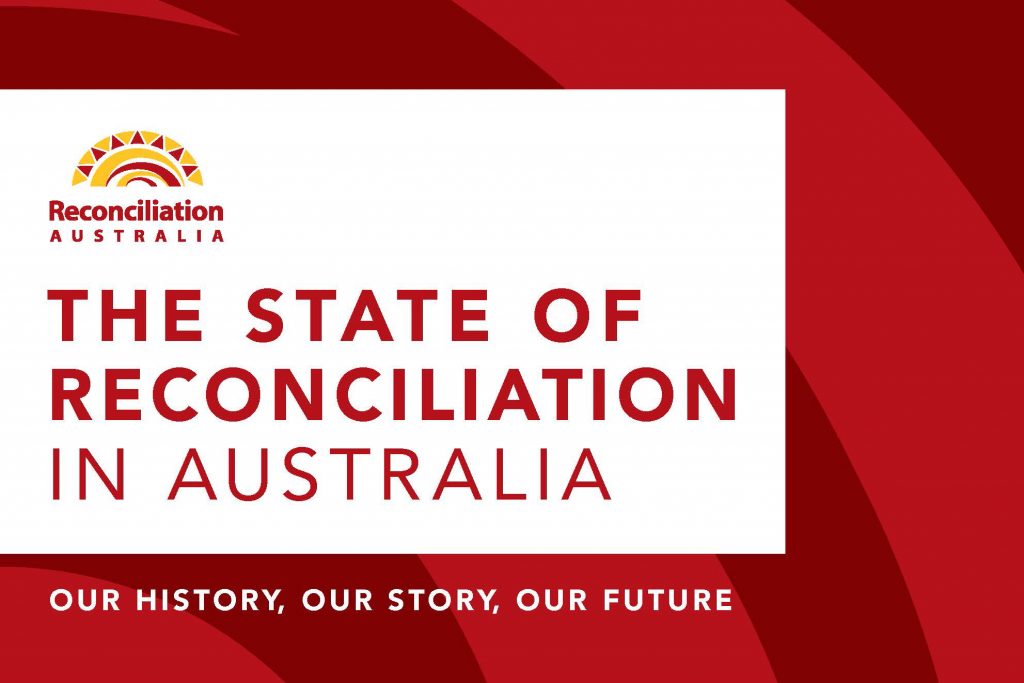
By Marco Ceccarelli
The Aboriginal Catholic Ministry and the Aboriginal Catholic Council of Perth were pleased to receive news earlier this year of the release of The State of Reconciliation in Australia Report by Reconciliation Australia.
The first of such reports in more than 15 years, the all-encompassing and detailed document was made public on 9 February and addresses all the achievements under the five dimensions of reconciliation; namely, race relations, equality and equity, institutional integrity, unity, and historical acceptance.
Among these are the establishment of the native title, the Apology, the Closing the Gap framework and progress on constitutional recognition of First Australians.
The report also highlights the extensive ground still to be covered in order to improve relations between Aboriginal and Torres Strait Islanders and the greater Australian community. It makes detailed recommendations on how to move forwards in this regard.
Coordinator of Aboriginal Catholic Ministry in Perth, Vicky Burrows, recently spoke to The eRecord about the effect of The State of Reconciliation in Australia Report on the Archdiocese and its potential to trigger important conversations within our community.
“This report is a must read for all Catholics, and all Australians,” Ms Burrows said.
“It looks back on the last 25 years of the Reconciliation Movement in Australia and provides a vision and recommendation for the future of the Movement. We have come a long way but still have a long way to go and it is important that faith communities, including the Catholic Church, continue to play our role in our Church and the wider community,” she added.
Ms Burrows went on to point out the Catholic Church’s strong record of working towards reconciliation and for the rights and opportunities of Aboriginal people and addressed some of the objectives which agencies of the Perth Archdiocese can aim towards.
“The Reconciliation Report presents a five-part framework for reconciliation and, in our Catholic community, this will involve a joint effort of commitment to positive race relations and celebration of Aboriginal contribution to Australia.
“Today, the Church has many agencies, schools, programs and individuals which are following Jesus’ message of ‘loving our neighbours as He has loved us’. The Aboriginal Catholic Ministry and the Aboriginal Catholic Council are excited about working with the Catholic Community to build up the faith life of Aboriginal people and to go on a journey of reconciliation with the wider Catholic Community,” Ms Burrows said.
Also contributing to the discussion was Noongar woman, Aboriginal Catholic Council member and parishioner at Holy Trinity Catholic Church in Embleton, Christine Taylor.
Speaking on reconciliation, Ms Taylor stressed that, along with the process of healing, there must be a plan to move forwards, particularly with our younger generations.
“I want to see our young kids grow up with the Catholic faith, knowing Jesus and knowing their identity as Aboriginal people. Catholic schools are doing a good job but I am concerned about those who don’t go to Catholic schools: how are they learning about Jesus? As a teacher, member of the Aboriginal Catholic Council, and a parishioner at our Aboriginal Mass at Embleton, I believe kids are so important to the future.”
Former Federal Aboriginal Affairs Minister and Reconciliation Australia Board Member, Fred Chaney AO, also commented on the report, framing it as a reminder of “the opportunity the Church has to contribute on all of its identified aspects, race relations, equality and equity, unity, integrity and historical acceptance.
“The story of Jesus talks to us about all these things. Not applying his message to our Aboriginal brothers and sisters would be a negation of it. We must play a real and active role if we are to live up to Him,” Mr Chaney said.
The State of Reconciliation in Australia Report, in both its ‘summary report’ and ‘full report’ versions, can be viewed on the Reconciliation Australia website by Clicking Here.
To view the video, entitled Our History, Our Story, Our Future, created to mark the release of the report, follow this link.
Some of the ways suggested by Aboriginal Catholic Ministry, in which one may become involved in reconciliation at a parish, diocesan and community level, are listed below:
- celebrating a Reconciliation Week event in your community
- celebrate Aboriginal and Torres Strait Islander Sunday on 3 July and use resources from The National Aboriginal and Torres Strait Islander Catholic Council
- visit the Reconciliation Western Australia website (reconciliationwa.org.au)
- find out how your school is working with Aboriginal people in the community
- learn more about Reconciliation Action Plans and if your school, workplace or Church has one.